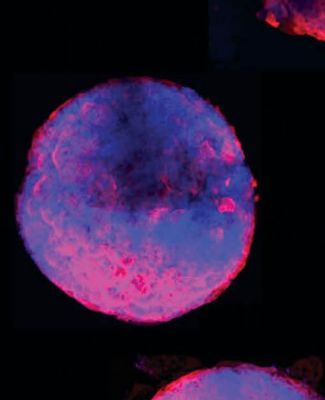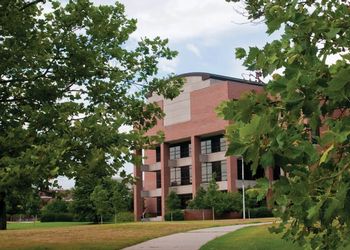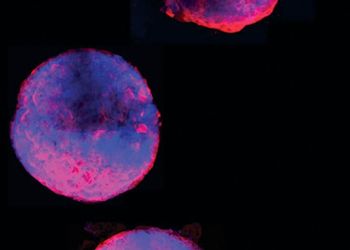MSU Scientists Create Miniature Heart to Study Disease

MSU Scientists Create Miniature Heart to Study Disease
Researchers at MSU have created the world’s first miniature human heart in the laboratory.
October 21, 2020“These mini hearts constitute incredibly powerful models in which to study all kinds of cardiac disorders with a degree of precision unseen before,” said Aitor Aguirre, the study’s senior author and assistant professor of biomedical engineering at MSU’s Institute for Quantitative Health Science and Engineering.
This study, “Generation of Heart Organoids Modeling Early Human Cardiac Development Under Defined Conditions,” was funded by grants from the American Heart Association and the National Institutes of Health.
The human heart organoids, or hHOs for short, were created by way of a novel stem cell framework that mimics the embryonic and fetal developmental environments.
The innovation deploys a bioengineering process that uses induced pluripotent stem cells—adult cells from a patient to trigger embryonic-like heart development in a dish—generating a functional mini heart after a few weeks.
“This process allows the stem cells to develop, basically as they would in an embryo, into the various cell types and structures present in the heart,” Aguirre said.
The organoids follow the natural cardiac embryonic development process, allowing researchers to study the natural growth of an actual fetal human heart in real time.
“In the lab, we are currently using heart organoids to model congenital heart disease—the most common birth defect in humans affecting nearly 1% of the newborn population,” Aguirre said.
“With our heart organoids, we can study the origin of congenital heart disease and find ways to stop it.”
Aguirre and team are excited about the wide-ranging applicability of these miniature hearts. They enable an unprecedented ability to study many cardiovascular-related diseases—from chemotherapy-induced cardiotoxicity to the effect of diabetes, during pregnancy, on the developing fetal heart.
Other researchers involved in this study were Aaron Wasserman, Mitchell Gabalski and Kristen Ball at MSU; and Chao Zhou, Jinyon Zhou and Guangming Ni at Washington University in St. Louis.
Link to the scientific extract: go.msu.edu/cardiac















